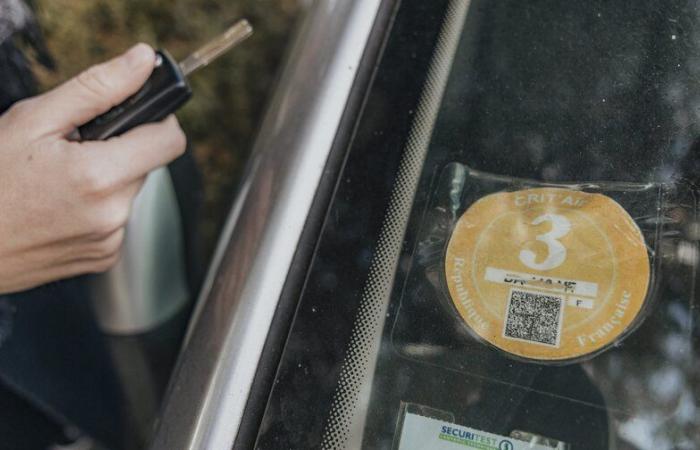In Ile-de-France, the Crit’Air 3 will still be able to circulate freely for 139 days next year. PHOTOPQR/LE DAUPHINE/MAXPPP
Return to earth for the leaders of the Greater Paris metropolis. A few days before the ban on Crit’Air 3 vehicles within the Low Emission Zone, we finally learn that they will finally be able to circulate 24 days a year, compared to 12 until now, thanks to a “24 hour pass” which will work in addition to weekends. “A platform will be created at the beginning of January on which you will have to connect to request the pass which will be valid for three years. In the event of a police check, they will consult the platform remotely to verify that the driver is in compliance.“, explains Patrick Ollier, President of the Greater Paris metropolis, in an interview with Parisian/Today in France.
This leads to 139 days a year the possibility of deviating from the restrictions, which apply from Monday to Friday from 8 p.m. to 8 p.m., and this still concerns some 1.1 million vehicles, or 18% of the region’s vehicle fleet (AAA Data figures). In addition, Crit’Air 3 vehicles (pre-2011 diesel and pre-2005 gasoline) will escape controls for 1 year, a period which will correspond to a “educational phase” during which mayors will be required to distribute information booklets to motorists. Let us also remember that regulatory flexibility applies to many professionals.
No control, therefore no sanction
We also know that the automated controls supposed to penalize “dirty” vehicles circulating within a perimeter delimited by the A86, the Ile-de-France ring road, will not be operational before 2026. The public authorities are not in a position to control the application of their decisions, non-compliance with which exposes them to a fixed fine of €68, they therefore prefer to temporarily kick aside, which appears to be a decision of common sense, with all due respect to the elected environmentalists from Ile-de-France who deplore an EPZ on the verge of becoming only “virtual” due to its non-social acceptability.
These decisions are dictated by the severe reduction in purchasing aid announced by the resigning government for 2025, a consequence of bloodless public finances. The overall budget intended for greening the car fleet will be reduced by half, to around 700 million euros. The maximum bonus amount will be 4 000 €and this will only concern households with a tax income per share (RFPP) of less than €16,300. It will be €3,000 for an RFPP between €16,300 and €26,200, and €2,000 beyond, and only for the purchase of electric cars produced in Europe. The conversion bonus is going by the wayside, and the Greater Paris metropolis does not yet know, given the financial restrictions applied to it, to what extent it will be able to maintain its own purchasing aid, which concerned 9,000 files for an amount of 35 million euros since 2019. The only certainty in all this is that the Crit’Air 3 cars will still be able to circulate freely for a few months, or even a few years.
Finally, note that the metropolis of Lyon, which also prohibits the circulation of Crit’Air 3 vehicles (46,800 vehicles) from January 1, has just decided to implement a one-year exemption, renewable once. times, which will allow workers working staggered hours to continue driving their polluting cars. These relaxations join those already decided in Montpellier, Strasbourg or Marseille. Simple common sense measures, ultimately.






